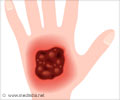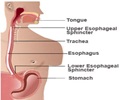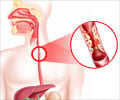Digestive disorders such as ulcers and reflux disease are treated with Proton pump inhibitors (PPIs) by reducing the body's production of the acid that helps us digest food.

‘There was a decreased risk of cognitive decline among the people who used PPIs regularly, as well as among people who used them occasionally.’





Recently, safety questions about these medications have been raised in several studies. These studies suggested that PPIs increased the risk for dementia and Alzheimer's disease in people 75-years-old or older. Noting that the prescription of PPIs is on the rise among middle-aged and older adults, a team of researchers designed a new study to examine PPIs and the risk of dementia, mild cognitive impairment, and Alzheimer's disease. They published their study in the Journal of the American Geriatrics Society. The researchers also examined whether people with mild cognitive impairment who took PPIs were at higher risk for developing dementia or Alzheimer's disease.The researchers examined information from the National Alzheimer's Coordinating Center (NACC) database for 2005 through 2015. Data came from people who were 50-years-old or older and had either normal brain function (their scores on cognitive tests were normal and they could perform everyday activities) or mild cognitive impairment (their cognitive test scores were lower than normal but they could still perform everyday activities). The researchers monitored whether the participants took PPIs, how often they took them, and which PPIs they used.
Of the 10,486 participants: More than 8 percent said they always used PPIs. More than 18 percent used them occasionally. More than 73 percent never used PPIs. The people who always or occasionally used PPIs were significantly older than those who didn't. What's more, compared to the non-PPI users, a significantly higher percentage of those who took PPIs regularly or occasionally had heart disease, diabetes, hypertension, stroke or transient ischemic attack (TIA, a brief stroke-like attack that generally ends quickly but still requires immediate medical attention), and depression.
A higher percentage of people who took PPIs regularly or occasionally also took a higher percentage of anticholinergic medications, which are often used to treat incontinence, depression, and sleep disorders. These medications have been linked to cognitive impairment, too.
The researchers cautioned that clinical trials would be needed to confirm whether PPIs were linked to a greater risk of cognitive decline.
Advertisement
Source-Eurekalert









